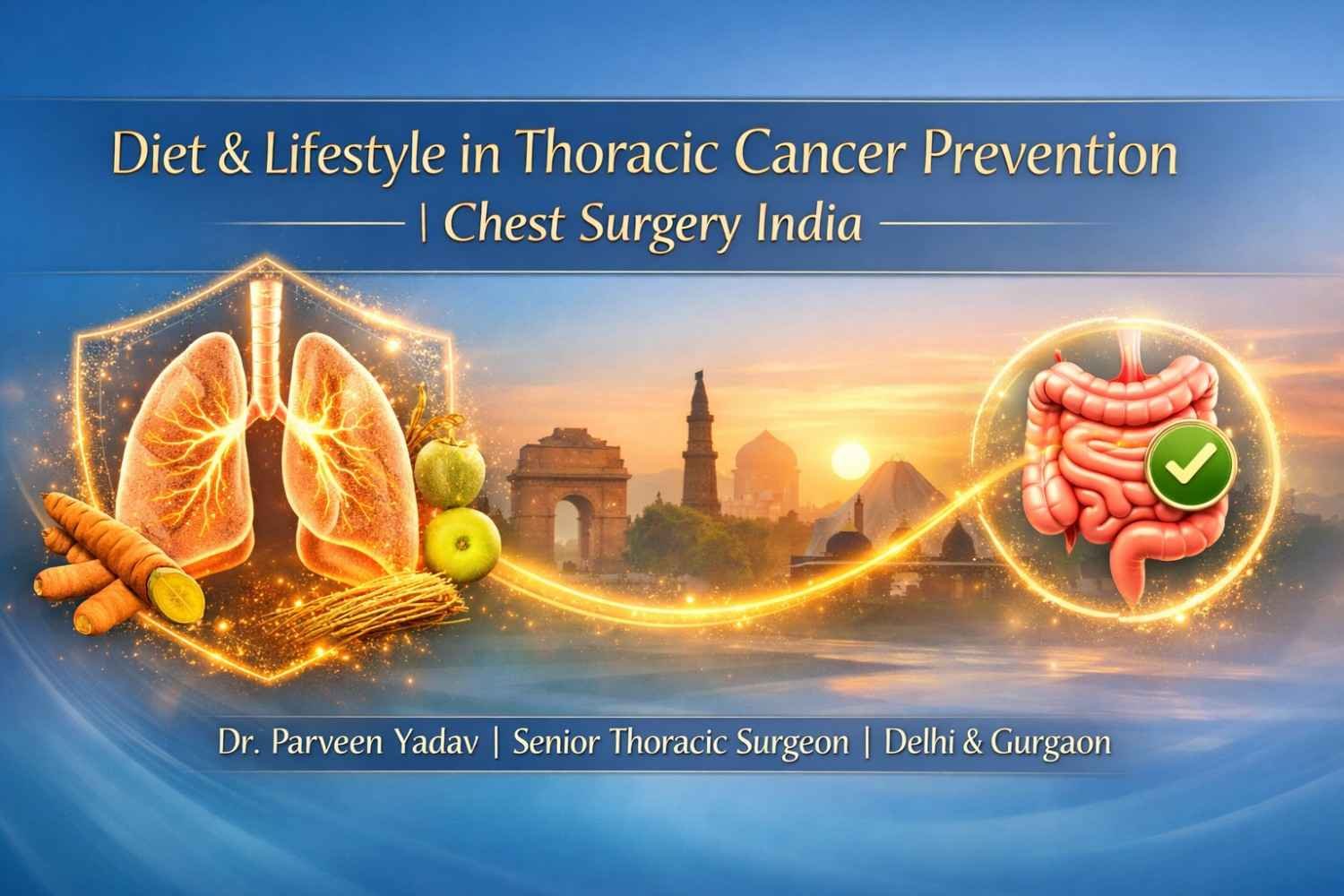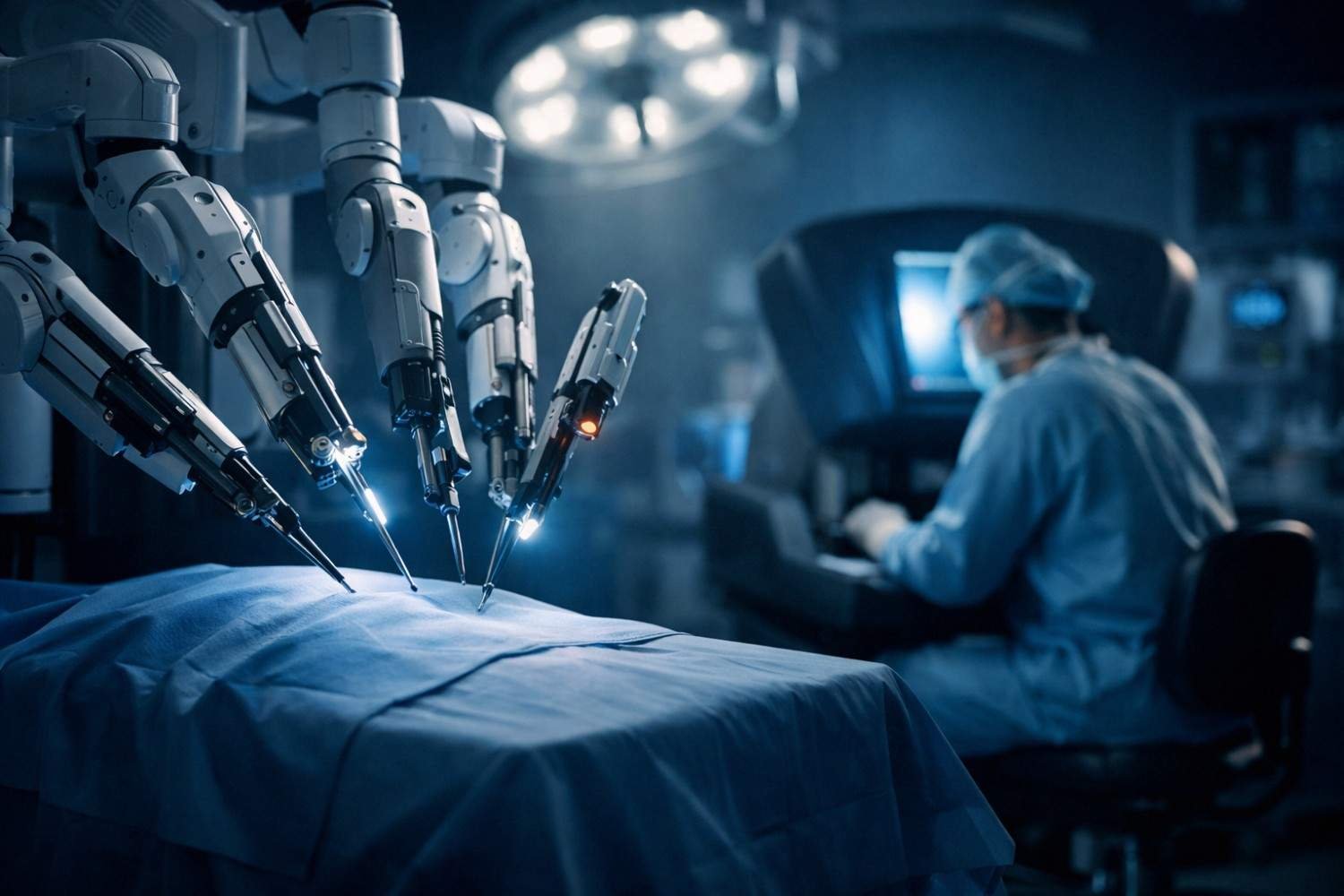

Esophageal cancer is a formidable adversary, often presenting silent symptoms until it reaches advanced stages. Understanding the signs and prioritizing early detection can significantly improve outcomes for those affected. In this blog, we will delve into the symptoms of esophageal cancer, shedding light on the importance of recognizing them early for effective intervention. In the previous blog, we discussed Understanding Esophageal Cancer Risk Factors.
Its symptoms can be subtle and easily mistaken for other less severe conditions. They recognize these signs as early as they can make a vital difference in the prognosis.
Esophageal cancer can lead to difficulty in swallowing, a symptom often overlooked. Paying attention to persistent swallowing issues can be crucial for early detection.
Unexplained weight loss is a red flag that warrants attention. It can cause a decrease in appetite and subsequent weight loss.
While common, persistent heartburn or indigestion can be indicative of esophageal issues. If you are experiencing any of these symptoms, you must seek medical evaluation.
Its may cause discomfort or pain in the chest area. It's essential not to dismiss persistent chest symptoms and seek professional advice promptly.
A persistent cough or hoarseness may be linked to esophageal cancer, especially when accompanied by other symptoms. Monitoring these signs is crucial for early detection.
Early detection is paramount in improving esophageus cancer outcomes. Regular screenings and awareness of risk factors can detect the disease early on.
Routine medical check-ups allow for monitoring overall health, providing an opportunity for early detection.
Endoscopy is a crucial diagnostic tool for this cancer. It enables the visualization of the esophagus and the collection of tissue samples for biopsy.
This imaging test involves swallowing a contrast material that highlights the esophagus on X-rays, aiding in identifying abnormalities.
Esophageal manometry measures the muscular contractions of the esophagus, helping diagnose issues such as dysphagia.
Individuals with risk factors, such as a history of Barrett's esophagus or chronic GERD, should undergo regular screenings to detect esophageal cancer early.
Q: Can esophageal cancer be prevented?
A: While not entirely preventable, lifestyle modifications, such as quitting smoking and managing acid reflux, can reduce the risk.
Q: What role does diet play in esophagus cancer prevention?
A: A healthy diet rich in fruits and vegetables may lower the risk of esophagus cancer. Limiting alcohol is also recommended.
Q: Are there genetic factors that increase the risk of cancer?
A: Some genetic factors may contribute, but most cancer cases are associated with lifestyle and environmental factors.
Q: How often should individuals with GERD undergo screenings?
A: Individuals with chronic GERD should consult their healthcare providers for personalized screening recommendations.
Q: Are there advancements in esophagus cancer treatment?
A: Yes, advancements in treatment options, including surgery, chemotherapy, and targeted therapies, continue to improve outcomes for patients.
Finally, recognizing the symptoms of Esophageal cancer and prioritizing early detection is pivotal in improving outcomes. Dr. Parveen Yadav and the dedicated team at Chest Surgery India emphasize the importance of proactive healthcare measures. Regular screenings, awareness of symptoms, and a commitment to a healthy lifestyle can collectively contribute to the early detection and effective management of esophageal cancer.

18+ Yrs Exp | 5,700+ Thoracic & Robotic Cancer Surgeries
Dr. Parveen Yadav is a Director and Senior Consultant in Thoracic and Surgical Oncology, specializing in minimally invasive and robotic lung and esophageal surgeries, with advanced training from AIIMS and Tata Memorial Hospital.
View Full Profile Pain After Thoracic Surgery: Tips for Smooth Recovery
Pain After Thoracic Surgery: Tips for Smooth Recovery
 Diet & Lifestyle for Thoracic Cancer Prevention | Dr. Parveen Yadav
Diet & Lifestyle for Thoracic Cancer Prevention | Dr. Parveen Yadav
 Robotic Thoracic Surgery: How Da Vinci Technology is Revolutionizing Chest Procedures
Robotic Thoracic Surgery: How Da Vinci Technology is Revolutionizing Chest Procedures
Struggling with pain after chest surgery? Dr. Parveen Yadav shares expert recovery tips, causes of shoulder pain, PTPS signs, and what your discharge sheet won't tell you.
Discover how diet, breathing exercises & daily habits help prevent and recover from thoracic cancer. Expert insights from Dr. Parveen Yadav, Chest Surgery India
Discover how Da Vinci robotic surgery is transforming chest procedures in Gurgaon. Less pain, faster recovery & expert care by a certified thoracic surgeon
Copyright 2026 © Dr .Parveen Yadav all rights reserved.
Proudly Scaled by Public Media Solution!